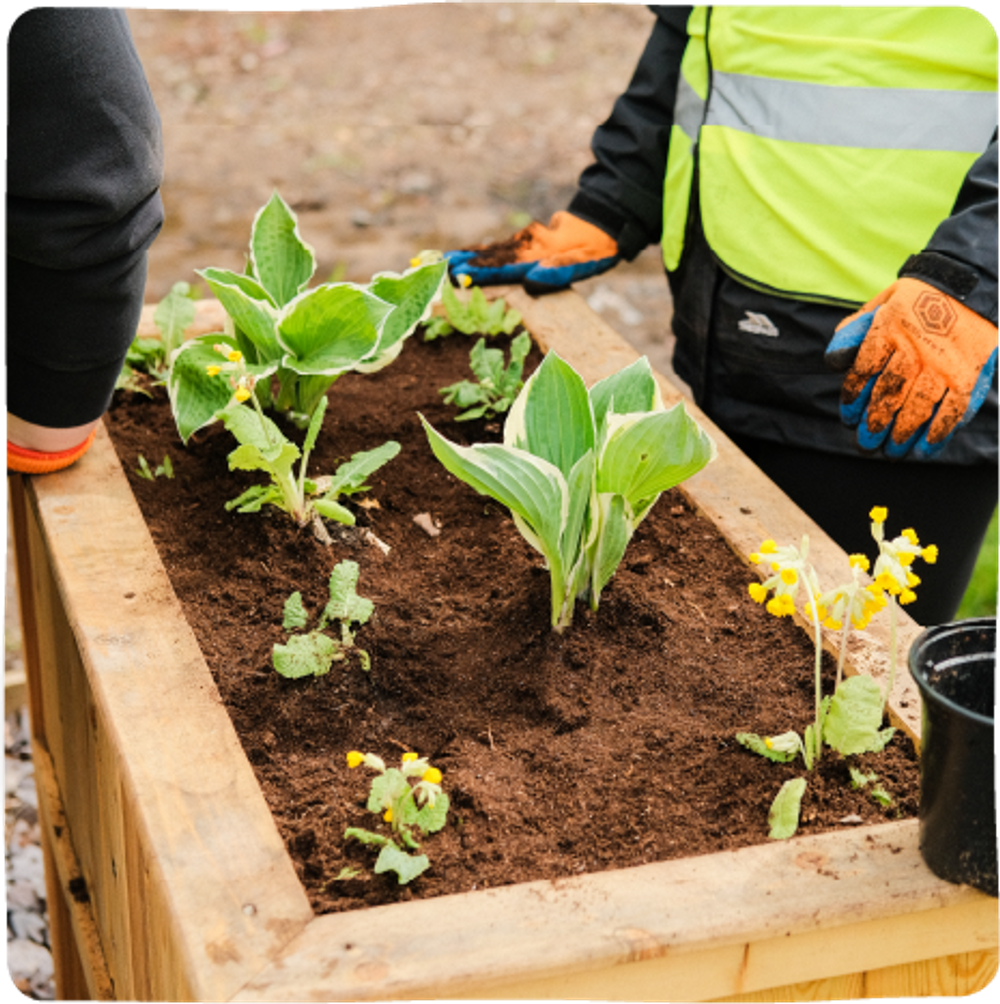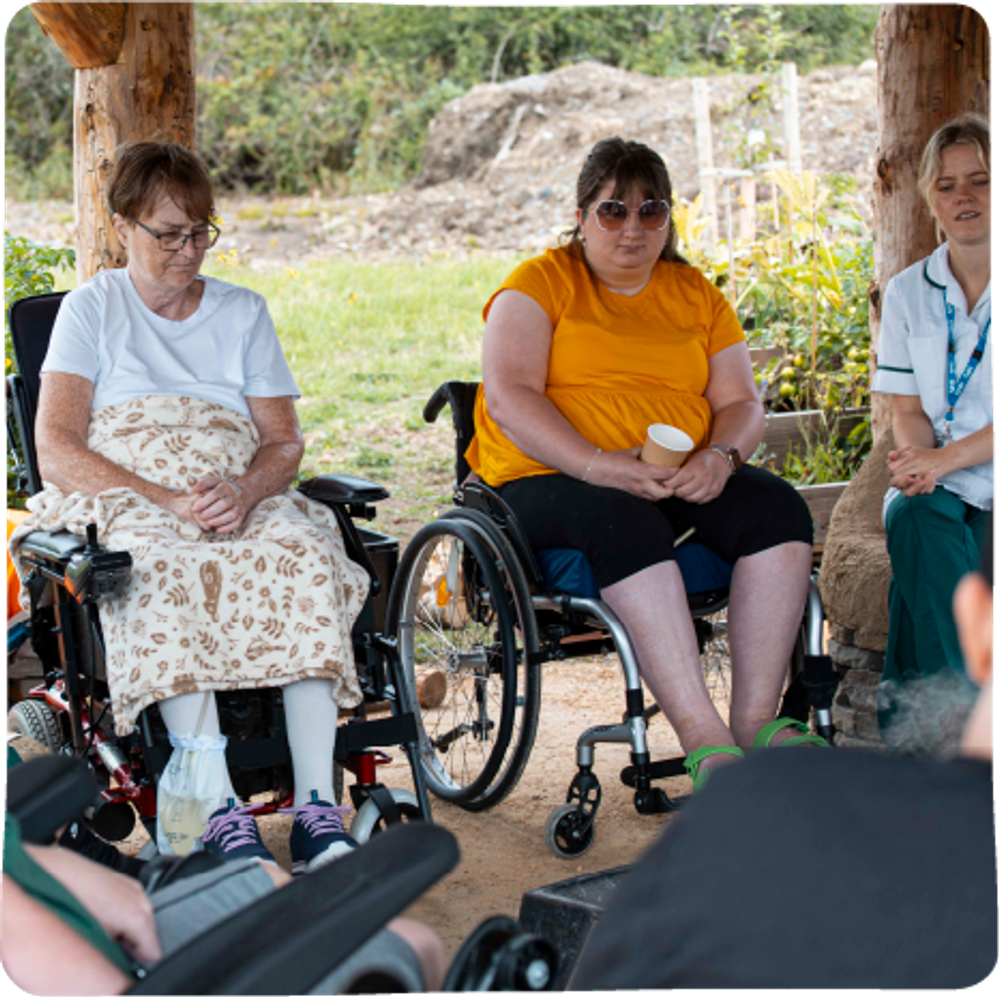Turning grey to green
By Alex Robinson, 29th May 2024
What if there was a new drug that could boost mental health, make us feel more energetic and less stressed, and help us feel more connected to those around us, too? What if that ‘new drug’ was something we’d always known, was freely available, but many of us had lost sight of, or lost access to?
I’m talking, as you might have guessed, about spending time in nature. The benefits are increasingly well-established, and the comparison with medicine is not so far-fetched either: a recent report showed that the NHS could save £625m a year by prescribing time in nature – something that’s happening more and more.
And yet, healthcare settings themselves are often devoid of accessible green space, depriving patients and staff of these benefits. This is part of a pattern of need: roughly one-fifth of the population live in areas deprived of green space – and the situation could be getting worse. It’s predicted that with a growing population, we need 4,000 new green spaces by 2033 just to keep up with current levels of access.
The Greener Communities Fund is a partnership between Hubbub and NHS Charities Together, made possible through the Starbucks 5p cup charge.
Research commissioned by the Greener Communities Fund found lots of reported potential benefits: eight-in-ten of us feel healthier and more energetic after spending time in nature, while seven-in-ten report improved mental and physical health, from better sleep to reduced stress and improved mood.
This is the second year of the Greener Communities Fund, and we’re delighted to introduce eight new projects that will receive funding to create green spaces in hospital grounds, health care centres and within communities.
Here’s how they’re increasing access to nature for patients, staff and local communities:
Swapping concrete for greenery:
- Creating a sensory garden at a dentistry unit for children in Dorset
- Greening the courtyards for patients in physical rehabilitation in Leeds
- Create a relaxing garden for dementia patients in Stockport

Making existing nature more accessible:
- Creating a network of wildlife habitats and boosting biodiversity, across a 7.5-hectare site in Greenwich
- Creating an outdoor kitchen, allotments and a woodland walk for patients with mental ill-health in Cornwall

Activities that bring people into nature:
- Running nature-based rehabilitation for people with head injuries, and scaling up green social prescribing in Bristol
- Providing food growing and gardening activities across 8 healthcare sites in Lanarkshire
- Creating a child-friendly garden with play equipment and a vegetable patch at a children’s health centre in Tottenham

The impact so far
The projects from the first round of the fund, which awarded £1.2m to nine NHS charities around the UK, are beginning to report their benefits.
Birmingham Women’s and Children’s NHS Foundation Trust, for example, was awarded Greener Communities funding to create a new green space at a site treating young people experiencing severe mental health problems. Outdoor space was limited, and a neglected field had long become inaccessible due to building works and rubble.
The project enabled this land to be cleared, and it now hosts a new lawn and over 100 fruit trees planted by volunteer groups. The wooded area behind the field can be accessed for the first time, with a path creating a walking route around the site.
What we’ve learnt about turning grey to green from the first round of projects:
- Create access: Sometimes we can’t see (let alone access) the green spaces right under our noses, like in the example in Birmingham above. Look for what already exists and what might be stopping people from accessing.
- Work with the weather: In the UK it can feel like the weather is against us spending time outside. University Hospital Llandough created outdoor sheltered seating, so that outdoor activities could continue come rain or shine. Could adding shelters and benches to your outside spaces encourage people to spend more time outdoors?
- Lend a hand: If you can’t transform your space, why not lend a hand to take care of existing green spaces? Starbucks partners across the UK have been volunteering at Greener Communities projects. Green spaces need constant maintenance, and it’s a great way for people to get out and get a daily dose of nature.
At Hubbub, our work will continue to explore how to increase the quantity and quality of green spaces, to maximise their benefits (especially for those who don’t currently experience them), and to support people and communities who engage with nature to take further environmental action. If you’d like to support this work, please do get in touch.
Are you a business that wants to collaborate?
If you have a challenge to share, or want to get involved with our work, we'd love to hear from you.
Want to stay in the loop?
Sign up to our newsletters to be the first to know about new campaigns, launches, tips, research and environmental news. You’re in for a treat.
